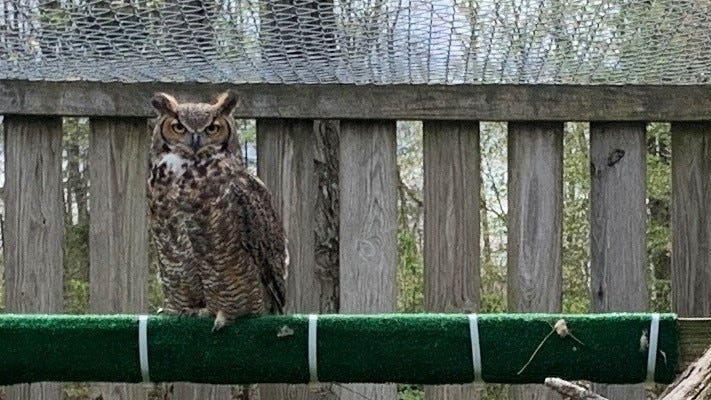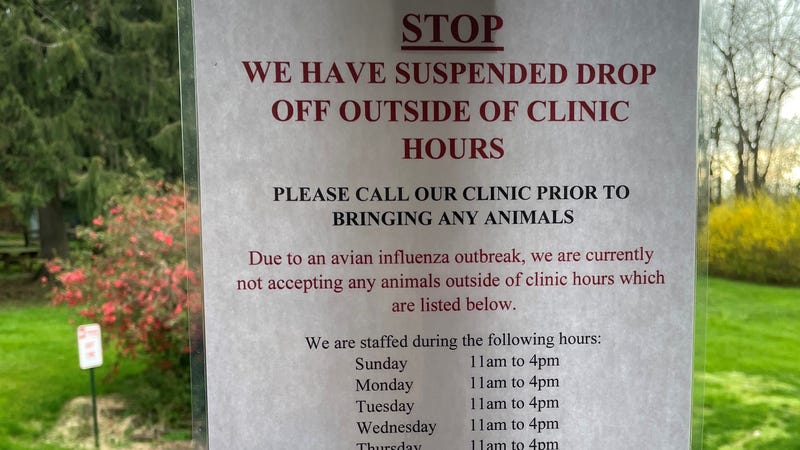CHALFONT, Pa. (KYW Newsradio) — Highly Pathogenic Avian Influenza, otherwise known as bird flu, continues to spread. Wildlife rehabilitation centers in the Delaware Valley are taking extra safety measures to protect the animals in their care.
Elliot the great horned owl is one of about 10 resident raptor ambassadors, otherwise known as education birds, at Aark Wildlife Rehabilitation and Education Center in Chalfont, Bucks County.
“We have a red tail named Windsor, we have a turkey vulture named Zsa Zsa, two black vultures, Grim & Reaper, and Jackson the Eagle,” said Leah Stallings, Aark’s executive director and wildlife rehabilitator.
“They are our ambassadors and we are unable to house them indoors, which is the recommendation during this bird flu outbreak. Since we don’t have the facility to put them inside, we decided to limit anything on this property that could cause them not to become sick,”
That means all injured or orphaned birds will not be able to be cared for at the center right now, except for songbirds which experts say pose less of a risk of spreading the disease.
“That was really a hard decision,” Stallings admitted. “We never had to refuse an animal in 50 years”

Aark is also limiting its hours, operating by appointment only. They continue to accept mammals like raccoons, rabbits, foxes, and squirrels.
Volunteers are also needed.
Aark is the biggest wildlife rehabilitation center in the state, and it’s referring birds that they can’t accept to other facilities than are able to, Those include the Philadelphia Metro Wildlife Center in Norristown and the Schuylkill Wildlife Center in Roxborough.
“As of right now, we are testing birds for it, and it is extremely rare in wildlife,” said Rick Schubert, the executive director of the Philadelphia Metro Wildlife Center.
“I am in communication with a state biologist. We are taking it day by day.”
Interested people should call ahead for an appointment, Schubert said.

“We have to be very careful that you are not abducting baby animals that don’t need to be taken. Creating orphans where they are not orphans. We talk to every person on a case by case basis before they bring in the animal, to make sure it really needs help and that you are not kidnapping baby animals,”
He said that if you see something unusual about an animal who may need help, call them first.
“We want be careful. Human safety comes first,” Schubert said.
“We want to stay on top of the science. Stay on top of the data and not make any rash decisions or knee-jerk decisions, but just proceed calmly and scientifically,”
If you choose to handle the animal, Schubert recommends using what he calls the “box-over” method to protect yourself.
“You are not touching them with your bare hands,” said Schubert.
“You are taking a box or a Rubbermaid tub or a recycling container or something like that, turning it upside down, placing it on top of the animal and then sliding a flat piece of cardboard, a ceiling tile, something underneath and then wrapping bungee cords or duct tape around it. That way you can get the animal without having to touch it, without having to endanger the animal or endanger you.
For more from KYW Newsradio:
- Download the Audacy App
- Listen live
- Listen on your smart speaker



